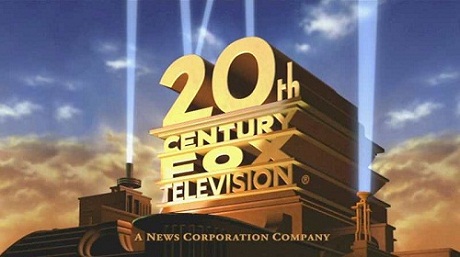Late last night I revisited one of my all-time favorite ’90s films — John McNaughton and Richard Price‘s beautifully written, superbly acted Mad Dog and Glory (’93). Shot by Robby Muller and cut and scored to perfection. And the kind of movie, to re-state the obvious, that big studios abandoned ages ago — the intelligent, adult-angled, middle-budget dramedy. Smooth and handsome with stars and finesse and a discernible theme that’s been developed and rendered just so…bingo.
I recorded two scenes from this mini-classic this morning and uploaded them to YouTube, and Universal’s brilliant legal department defaulted right in and blocked their usage. Really smart, guys. I’m just trying to give a little friendly attention to a forgotten Universal film.
Everybody looks so young in this thing. Robert De Niro, 49 during filming but looking more like 40, is Wayne, a.k.a. “Mad Dog” — a timid, lonely Chicago cop who specializes in forensics and crime-scene photographs. Bill Murray, 42 at the time, is Frank “the money store” Milo, a Chicago mob guy who becomes a big brother and “friend” of Wayne’s after the latter saves his life. David Caruso, 36, was never better as Mike, a fellow cop and Wayne’s best friend. And Uma Thurman, 22, delivered one of her best early-phase performances as Glory, a cocktail waitress who falls in love with Wayne (and vice versa) after Frank (“the expediter of your dreams, pal”) brings them together.
Here’s how I put it ten years ago, give or take:
Murray is settled and confident in the skin of his very unhappy bad guy. Frank is a tough loan shark who’s a lot like Murray in many ways, except he’s not. He’s lonely and doesn’t really like himself or his friends or his life. He wants to be somewhere else. He’s seeing a therapist to try and deal with his hostility issues, and he performs a stand-up comedy routine at a place called the Comic-Kaze Club, which he owns. But he doesn’t want to lose the gangster life either.
Frank and Wayne’s connection begins when Wayne — joshingly called “Mad Dog” by his cop pals due to his passive nature — saves Frank’s life during a grocery store holdup by calming down a jittery holdup man and sending him away without risking bloodshed.
Frank is initially appalled (“You’re a cop?” he says to Wayne right after the incident). But the next evening, realizing what Wayne actually did and starved for a friend, Frank tries to reciprocate by getting friendly over drinks. The next day he sends Glory, a pretty working-class girl who works at the Kamikaze Club, over to Wayne’s place, the idea being for her to stay with him and take care of whatever for seven days.
The wrinkle comes when Wayne and Glory fall in love, and Wayne decides he doesn’t want her being Frank’s “favor girl” any longer. But Frank won’t let her go (Glory has offered her services in order to save her brother from being killed over a debt) unless Wayne coughs up $40,000….which Wayne can’t raise.
The theme of the film is, basically, “no guts, no glory.” That sounds like macho crap, but it’s well sold, believe me.
I don’t know where Price’s script ends and Murray’s improvs begin, but Mad Dog and Glory is full of little Murray doo-dads. There’s his lounge-lizard rendition of “Knock Three Times,” casually crooned at the beginning of a tense scene. His addressing De Niro as “ossifer” (“officer” with the consonants reversed…an expression I hadn’t heard since I was a kid in New Jersey). The way he holds an air bugle to his lips and does a cavalry-charge bugle sound when De Niro’s cop friends come to his rescue at the finale.
There’s a scene in a diner in which Frank’s intellectually challenged top goon, Harold (Mike Starr), who’s sitting nearby with a supermarket tabloid, points at a middle-aged man sitting at the counter and whispers to Milo, “Hey, Frank? Isn’t that Phil Donahue?” A shot of the guy in question proves otherwise. Murray half turns in his seat and says, “Put the magazine down, Harold, before you hurt yourself.”
You want pathos? Consider the melancholy in Murray’s eyes after his fight scene with De Niro at the finish. This is a bright, sometimes funny guy who wants out and knows he won’t get there. He pulls a loose tooth out of his mouth, gestures at the gaudy Cadillac he’s sitting in and the gorillas he’s riding with, and says with a look of pure disgust, “This is my life .”
And Caruso’s Mike is his best feature-film riff ever. Mike is a sarcastic hardass, but a good man and loyal to the end. He has a bravura scene in which he faces down a bigger guy in a bar over a domestic abuse issue (the basher is another cop) and makes him back off. It’s a total classic. You can see why he had a lot of heat coming off this.
The film also has a couple of great Louis Prima tracks (“Just a Gigolo,” “That Old Black Magic”) that turned me into a fan.
Wayne: It’s the first time I pulled out my gun in 15 years. I pissed on myself.
Mike: You know why? Because you’re a sensitive, intelligent indivdual.
Wayne: You ever piss yourself?
Mike: Look, I woulda walked in there and drilled the rat-eyed little bastard, and that’s just the way I am. On the other hand, if I ever had an intelligent thought it would die of loneliness so it all evens out, you know what I mean? (pause) Look, if it ever happens again…? The best thing is sex. You’re all adrenalized? You go off like a rocket. If it was me, I’d be on the phone with every girl I knew [that] wasn’t related by blood. Listen, don’t kid yourself — that was balls-up what you last night.






